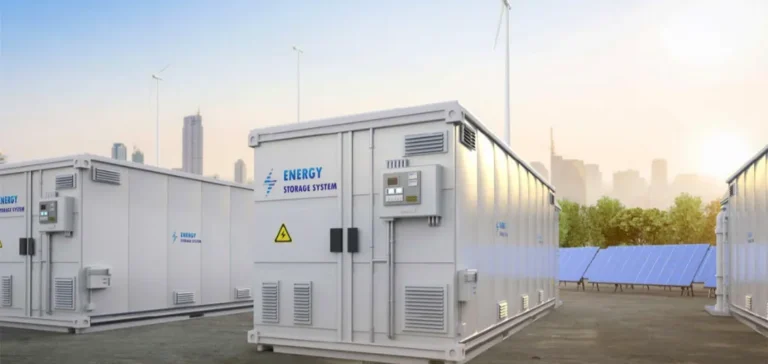HD Renewable Energy (HDRE), a Taiwanese company listed on the Taipei Stock Exchange, announced the grid connection of its Helios energy storage project in Sapporo, Hokkaido. This 50-megawatt (MW) system, with a total capacity of 104 megawatt-hours (MWh), was developed in partnership with investment manager Brawn Capital. The connection was made to Hokkaido Electric Power’s 66-kilovolt (kV) network at the end of July. Commercial operation is scheduled to begin by the end of the year.
With an estimated investment of 5.9 billion yen (approximately 37 million euros), the Helios project aims to optimize peak demand management and strengthen the stability of the local power system. HDRE positions this installation within a broader strategy of expansion in the Japanese storage market, in response to the growth of renewable energy and the increasing volatility of supply.
A multi-market positioning to diversify revenues
Once operational, the Helios project will be operated by Star Trade, HDRE’s subsidiary dedicated to electricity trading and storage asset management. The facility will participate in several segments of the Japanese electricity market: capacity market, spot market, and balancing mechanisms. Star Trade will use a digital asset optimization platform powered by artificial intelligence to maximize revenues through a model combining fixed remuneration (“tolling”) and market exposure (“merchant”).
This dual model allows for securing a stable cash flow while capturing additional revenue opportunities based on market conditions. HDRE anticipates a differentiated valuation of its assets depending on local demand, consumption peaks, and energy flexibility support mechanisms put in place by Japanese authorities.
Strategic expansion and gradual penetration of the Japanese market
HDRE has strengthened its presence in Japan since 2024. In April of that year, the company launched a joint venture with Mitsubishi Electric to develop Energy Resource Aggregation (ERA) services. In parallel, a partnership was established with Tokyu Land Corporation for a storage project in Gunma Prefecture. The latter received a subsidy of 1.19 billion yen under the Tokyo Metropolitan Government’s large-scale storage support program.
Moreover, HDRE became the first Taiwanese company to win auctions in Japan’s Long-Term Decarbonization Power Source Market (LTDA). The company secured 400 MW of storage capacity across two auction rounds in 2024 and 2025. The projects related to these awards are expected to come online between 2028 and 2029.
An evolving incentive framework for international players
Recent developments in the Japanese electricity market, including the introduction of decarbonization incentives and the opening to flexibility capacities, have attracted new international entrants. For HDRE, the challenge is to maintain investment momentum and align its projects with the mechanisms in place, while capitalizing on synergies between renewable generation, storage, and energy arbitrage.





















